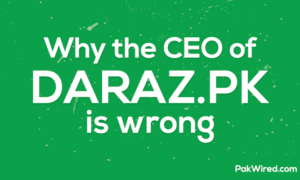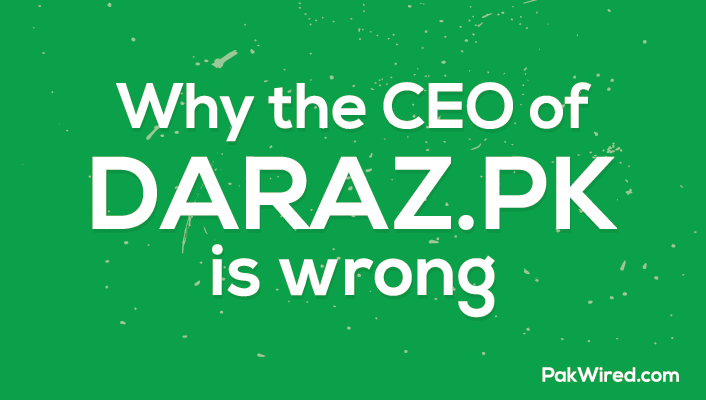In a recent interview with PakWired, the co-founder of Daraz.pk has advised that all those entering the online space should develop a brand strategy before finalizing a product.
I disagree.
Start-ups should be careful as to exactly when they invest in brand strategy depending on their particular situation. Early-stage companies should be in a mode of learning and experimentation and need to be able to change quickly based on what they find.
Attempting to lock in a brand at this point could make changing the nature of a company or product more difficult, as well as consume time and finances when both are in short supply. If a start-up were to focus on brand strategy in these early stages, it should be a sort of lean or agile brand strategy that enables the brand to be easily changed.
Personally I’d skip brand strategy this early and focus on positioning instead; focus on branding once you know who your visionary customers are and are selling to them, or at least before you try to cross the chasm into the early mainstream. Another factor that could affect timing of a brand strategy at start-ups is the market type they’re launching into.
If they’re launching into an existing market, early brand determination could be integral and itself might be part of their differentiation. When launching into a new market or a re-segmented existing market, the period of learning as applied to brand might need to extend a bit further as start-ups test the waters and see what type of brand and personality makes the best sense for them.
I believe that business is the engine that creates the wealth that drives the economy, providing the public with both the products necessary to survive and the jobs necessary to purchase the products. The engine is most efficient and powerful when greed and competition are unrestricted.
So we have a system where individual greed ensures the greatest common good. However, this principle is reflective of the system as a whole, and greed is no guarantee of maximum public good at the individual business level. More importantly, the motivation that profit brings, does not trickle down to most employees to drive efficiency throughout the business.
Business leadership must provide that motivation to the employee, and the way to provide that motivation is what this is all about. The goal has nothing to do with doing good or good intentions.
The goal is to motivate the workforce in order to drive business efficiency and effectiveness in order to drive profits. It’s still all about profit, but profit enhanced by insight instead of only greed. Greed drives the system, and greed drives the business owner, but leadership drives the business.


